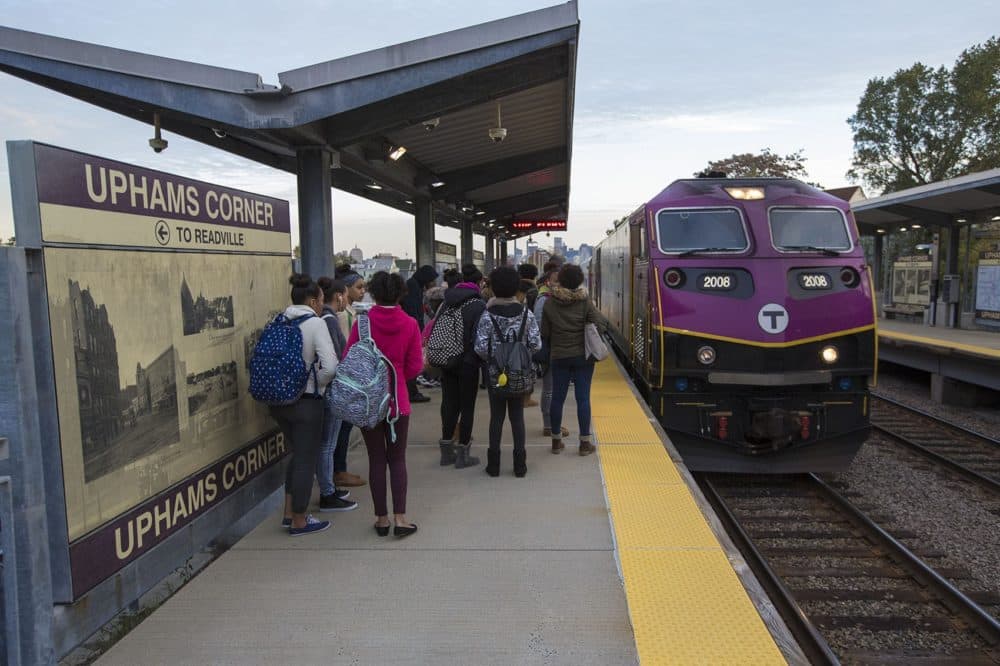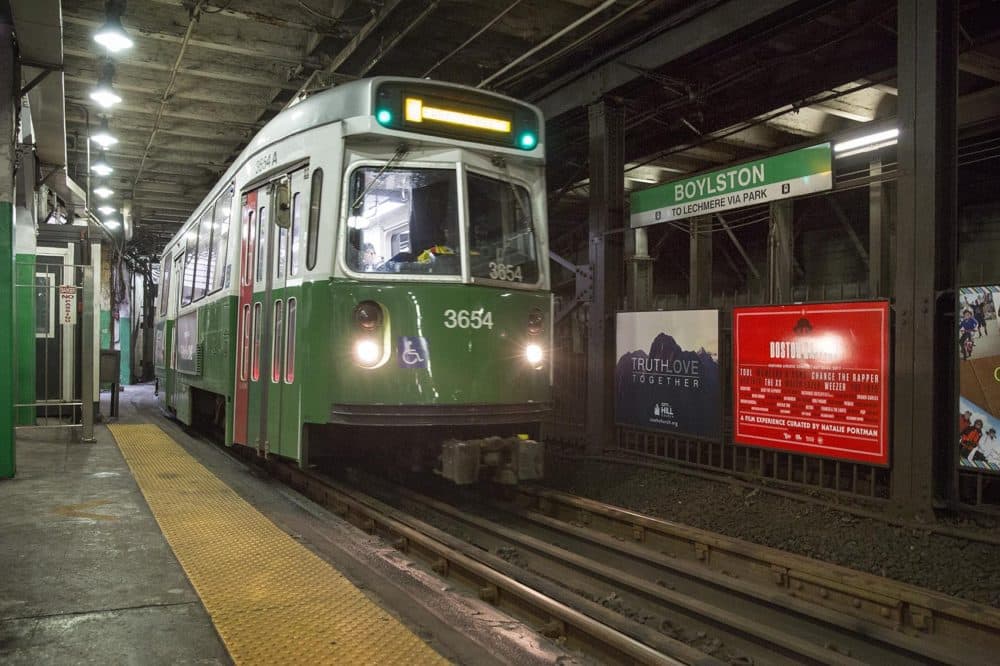Advertisement
Commentary
Don’t Dissolve The MBTA's Control Board. Empower It To Do More

Five years ago this month, the T was in acute crisis as a result of record snowfalls. Today, for want of adequate revenue, it’s in chronic crisis no matter the weather.
And now Governor Baker has set out to upend his signature and most successful reform to the T — the creation of its Fiscal and Management Control Board (FMCB).
The FMCB is set to be dissolved by statute in five months, a sunset that reflected skepticism in 2015 about whether the FMCB could or would make a difference. The soundness of the governor’s plan, and his wisdom in selecting appointees, has proved the doubters wrong (including us).
The FMCB, which is comprised of five appointees, has provided the public with unprecedented transparency and prioritized listening to riders’ comments at every meeting. It has looked at the T’s operations and capital budgets with astuteness and independence, and has openly discussed the T’s revenue needs, without soft-pedaling or political filters. Working with the administration, the FMCB turned the Green Line extension from an inherited government contracting boondoggle into a (so far) on-time, on-budget project that will soon serve parts of Medford.
In creating the FMCB, these were the virtues the governor touted, and the FMCB has delivered. But now, the Baker administration has proposed eliminating the current board and replacing it with a seven-member panel, six of whom would be appointed by him. It’s akin to packing a board with appointees that will be easier to rein in -- one would be the governor’s own secretary of transportation.
The FMCB has spoken the unvarnished truth about the T’s needs, and now is not the time to weaken its influence.
The FMCB has taken on these issues with candor and analytical rigor and should be empowered to do more rather than be abolished for its independence.
There has been near-unanimity among a host of unlikely allies, including transportation advocates, business leaders, and community-based organizations, that the T needs more recurring revenue to keep pace with the region’s robust economic growth, address a backlog of deferred maintenance and remedy wide inequities in service. The current MBTA budget is approximately $2 billion dollars, which includes a structural deficit of $36.5 million, indicating an insufficient amount of operating funds to produce a 21st century system. Governor Baker proposed an increase of $135 million in operating funds for FY21. Experts and advocates agree that more revenue from a variety of sources will be necessary to address the challenges facing the transportation system.
But this consensus has been stymied by the administration’s “reform before revenue” sloganeering. The FMCB has — politely and firmly — tempered the sloganeering with facts and analysis about why reform alone has failed to improve the experience of T users, staunch increasing congestion or increase system capacity.
Advertisement
The FMCB has taken on these issues with candor and analytical rigor and should be empowered to do more rather than be abolished for its independence.
To be sure, it should be relieved of the costly 36-meeting-per-year requirement. But robust opportunities for public input must be maintained, and 24 meetings per year could strike the right balance. Those kids of fixes should not be the cloak for putting the political kibosh on the current board.

Governor Baker should, instead, trumpet and capitalize on his own success and empower the FMCB to take on the T’s toughest challenges, including:
Renew and reform the FMCB’s role: As new members are appointed, the majority of board members should be regular bus or rail riders, and not MassDOT or T employees. The T’s general manager should report only to the board. The FMCB’s current five members, three appointed by the governor and one each referred by the Senate president and speaker of the House, should be given extended terms of varying lengths to assure orderly turnover.
Direct the FMCB to think big (and differently): The FMCB should focus on the T as it should be in 2035, not merely second-guess the day-to-day management or improvements in service it needed 20 years ago. The FMCB is currently balancing its oversight of operating realities with limited time to plan ahead, though it has made progress recently overseeing a planning process that laid out six alternative versions of the commuter rail that would better serve riders.
Give the FMCB ambitious goals and make it accountable: Any reauthorization of the FMCB should establish clear benchmarks for T performance, including: early opening of West Station, a new commuter rail stop in Allston; full implementation of a revitalized commuter rail with electrification by a specified date; metrics for the transformation and electrification of the bus network; fares that support increased access for workforce and low-income riders; and deadlines for making rail and bus infrastructure accessible to all riders and resilient to a changing climate.
Delegate the revenue question to the FMCB: The question of new revenue has long been a political football, deflated and fumbled. The Baker administration’s two fare increases are not enough to maintain and modernize the system. Let the FMCB take it on, shaping and sending the legislature a revenue plan that takes into account public input and forward-looking benchmarks. Then provide for a prompt vote in the legislature to end the decades-long political stalemate.
Between the FMCB and the administration’s Commission on the Future of Transportation, Governor Baker has laid the groundwork for transforming the crisis ridden MBTA into a system worthy of our world-class innovation economy and vibrant and diverse neighborhoods.
Let’s empower the FMCB to get the job done.